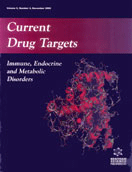Abstract
CD26 is a 110 kDa surface-bound ectopeptidase with intrinsic dipeptidyl peptidase IV (DPP IV) activity, which has multiple biological functions. In this review, we will focus specifically on work demonstrating that CD26 has a key role in immune function as a T cell activation molecule and a regulator of the functional effect of selected biological factors through its DPP IV enzyme activity. As further evidence of the important role played by this multifaceted molecule in immune regulation, we will also discuss experimental attempts from our laboratory and others to influence immunemediated conditions through CD26 monoclonal antibodies and DPP IV activity with various agents, including anti-CD26 monoclonal antibodies and DPP IV chemical inhibitors. Of special significance from a clinical perspective is also CD26 effect on glucose metabolism through its DPP IV activity and its potential role as a therapeutic target in diabetes. In addition, we will review recent studies that describe the physical and functional interaction of CD26 with other essential cellular structures and the biological consequences of their association. In particular, we will present recent data from our laboratory that demonstrates the correlation between CD26, especially its DPP IV activity, and the key nuclear protein topoisomerase II alpha, an interaction that has important clinical implications. In summary, we will examine the biology of the multifaceted CD26 / DPP IV molecule, focusing particularly on its function in immune regulation and its potential role as a molecular target for novel treatment modalities for a number of disease states, ranging from autoimmune diseases, diabetes to malignancies.
Keywords: cd26 dpp IV, doxorubicin, etoposide, topoisomerase
 10
10


















